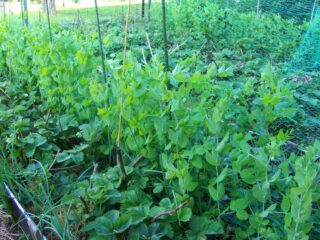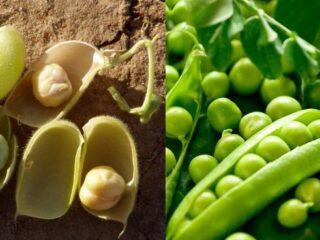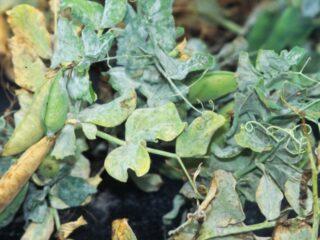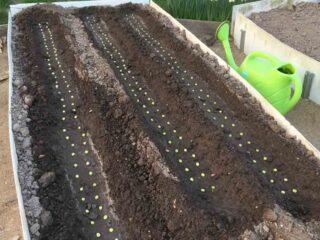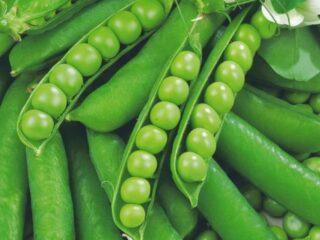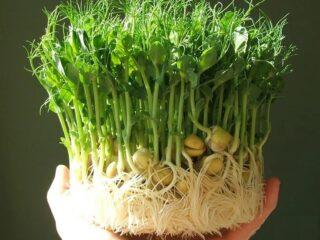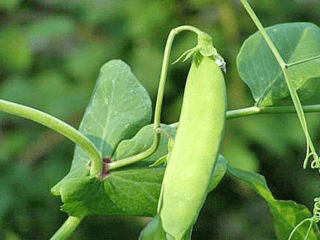Content
Soaking peas before planting is necessary for quick and successful germination of seed material. The procedure is quite simple, but when carrying it out you must follow certain rules.
Do I need to soak pea seeds before planting?
During long-term storage, pea seeds lose moisture and dry out greatly. If you plant them in the ground without first soaking them, germination will be difficult. Dry kernels will accumulate moisture in the soil for a long time and will not sprout immediately.
If you carry out special soaking before sowing, the peas will sprout faster and in full. The kernels placed in water will swell properly and produce small roots. After this, all that remains is to carefully transfer them to the soil and wait just a few days until greenery appears.
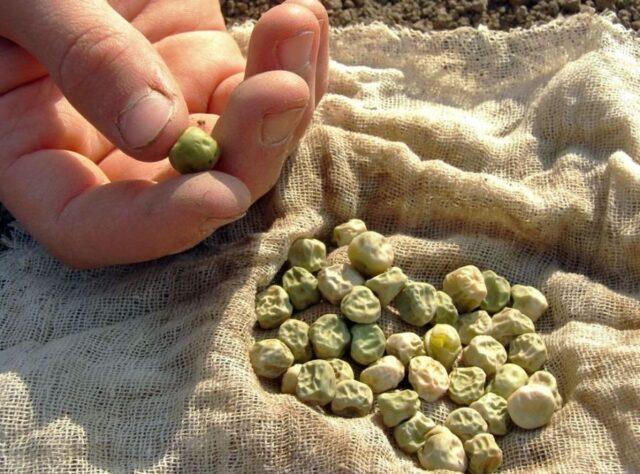
When sowing dry pea seeds, some of them may not sprout at all.
How long should you soak peas before planting?
The time for soaking peas before planting is determined individually. There are several points to take into account:
- characteristics of the pea variety;
- actual condition of dry seeds;
- type of solution used;
- concentration of the soaking agent.
On average, peas are kept in water for 6-18 hours. When using a special solution, you must study the instructions in advance. In addition, they look at the appearance of the kernels - they should be removed from the liquid only after they are well swollen.
How to soak pea seeds before planting
Soaking pea grains is a fairly simple procedure. But it will benefit the seed only if certain rules are followed. In addition, there are different ways to treat peas before planting. In general, they are similar to each other and differ mainly in duration.
Simple soaking
The easiest way is to soak the pea kernels in regular clean water at room temperature. The detailed algorithm looks like this:
- The seed material is pre-sorted. It is necessary to remove all damaged, too small or darkened grains.
- Selected kernels are checked for quality. To do this, stir 15 g of table salt in 1 liter of water, and then pour the peas into a container. For planting, you need to use those seeds that sink to the bottom. The floating kernels are discarded, since they will not sprout anyway.
- The selected material is poured into a new container with clean water at room temperature and left for an average of 10-12 hours.
- At the end of the procedure, the liquid is drained and the peas are transferred to a towel to dry.
When processing planting material, it is important to monitor the condition of the kernels and water. If bubbles appear in the bowl, this will indicate that the grains have died due to being in the liquid for too long.
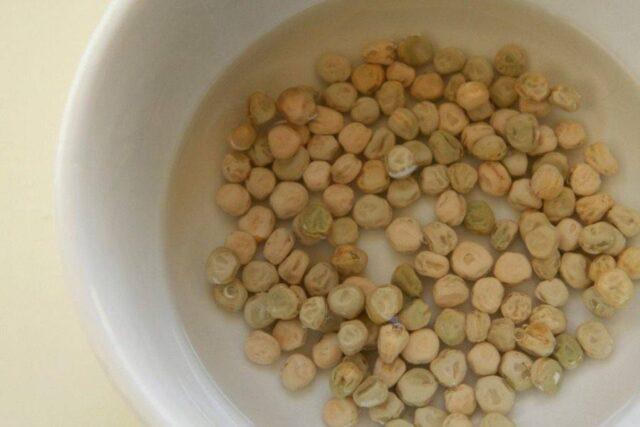
When soaking peas, change the liquid in the bowl every three hours to prevent it from turning sour.
Soaking in hot water
Another method suggests using hot water for soaking. The method allows you to significantly speed up the germination of the crop. The processing scheme looks like this:
- Pea grains are sorted and all low-quality kernels are discarded, and then the remaining material is tested using a saline solution.
- Selected seeds are poured into a thermos and filled with water at a temperature of 38-45 °C.
- Under the closed lid, leave the planting material in the liquid for three hours.
- After the period has passed, carefully drain the water and lay out the grains to dry.
When placed in hot liquid, pea kernels swell faster. In addition, vital processes are activated in them, and subsequently the material germinates better.
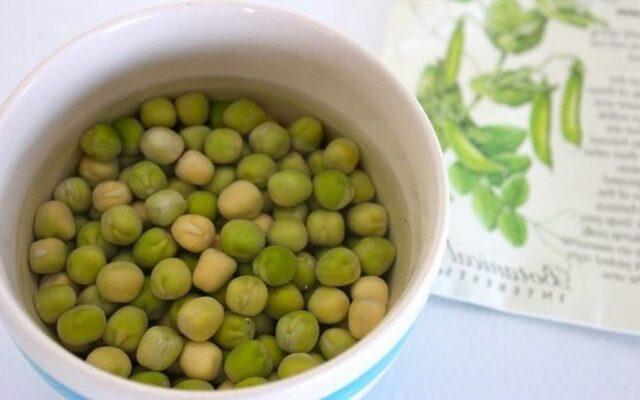
After soaking in hot water, peas sprout 2-3 days faster than after treatment with a warm solution
Use of preparations for soaking
You can soak peas before sowing not only in water, but also in special biologically active solutions. The addition of such drugs is considered very desirable, since they help to disinfect planting material and increase its resistance to infections and fungi.
Zircon
The fungicidal preparation Zircon is well suited for pre-soaking. The product not only accelerates germination, but also protects seeds from fungal diseases, and also increases productivity and stimulates the formation of new grains.
To prepare the solution, you need to add two drops of the drug per 300 ml of water. It takes 8-18 hours to keep the kernels in liquid, depending on their condition and the type of pea.
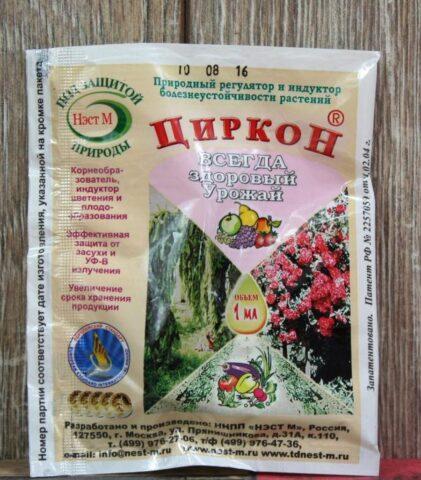
Zircon is suitable for soaking very dry seeds as it penetrates well through dense shells
Fundazol
A good effect when soaking is provided by a solution of Fundazol. A fungicidal agent is often used to treat and prevent fungal diseases of plants, but it can also be used before sowing seeds to increase immunity.
To process peas, you need to add 10 g of the drug to 2 liters of water and stir thoroughly. Legume kernels are kept in the prepared soaking solution for 6-18 hours until the shell softens. The procedure is carried out approximately five days before sowing.
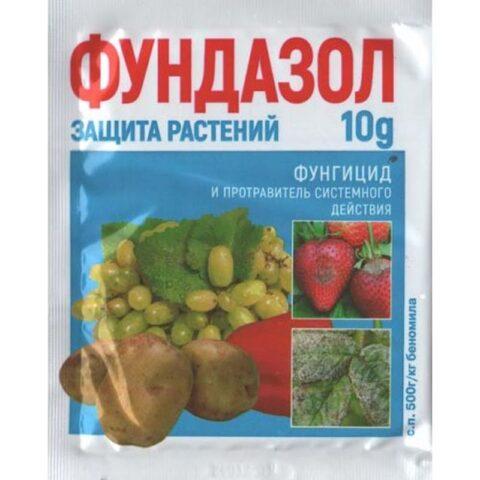
Foundationazol provides pea grains with protection from root rot
Epin
The antibacterial agent strengthens the immunity of pea grains and accelerates the germination of the material. After soaking in the preparation, the crop grows faster not only roots, but also above-ground shoots.
Epin for seed treatment is dissolved in water in a proportion of five drops per 500 ml of liquid. It is necessary to keep the grains in the product for 5-7 hours.
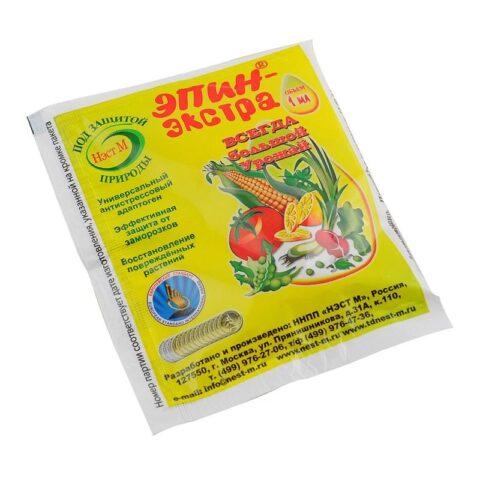
After treatment with Epin, peas bear fruit more abundantly
Sodium humate
Sodium humate is intended for pre-sowing treatment of seeds and helps strengthen their endurance and resistance to fungal infections.After soaking in the working solution, peas will not only germinate faster in the garden, but will also not suffer from root rot, fusarium and blackleg.
To prepare the product, you need to dilute about 500 mg of the active substance in 1 liter of water. The peas are kept in the preparation until the shell swells; processing usually takes about six hours.
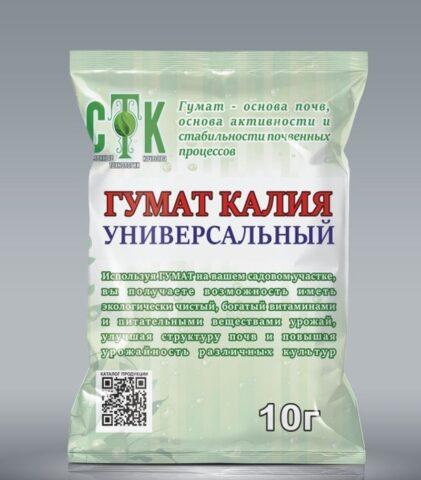
Sodium humate increases crop resistance to drought
Rizotorfin
A natural fertilizer for treating legumes can be used before planting peas. Usually, only 1.5 g of the drug is taken per 1 kg of seeds and diluted in warm water at room temperature.
It is recommended to keep the kernels in liquid for no more than an hour; the procedure is carried out directly on the day of planting. If the peas are very dry, they can be pre-softened in ordinary water, and only after that immersed in a biologically active solution.
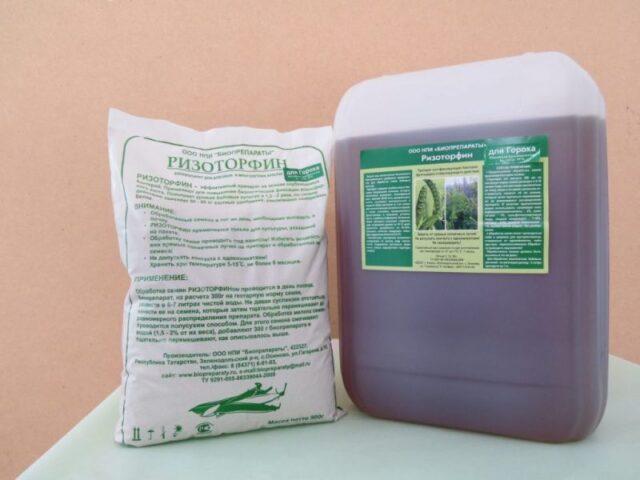
Rizotorfin enhances pea immunity to fungal diseases and stimulates root formation
Boric acid
If purchased drugs to protect against fungi and stimulate growth are not at hand, you can use household products. Boric acid has a good effect.
To soak peas, you need to dilute about 2 g of the substance in 10 liters of water, the temperature of the liquid should be 40 degrees. The kernels are immersed in the solution for just five minutes, and then removed, dried and sown in the ground.
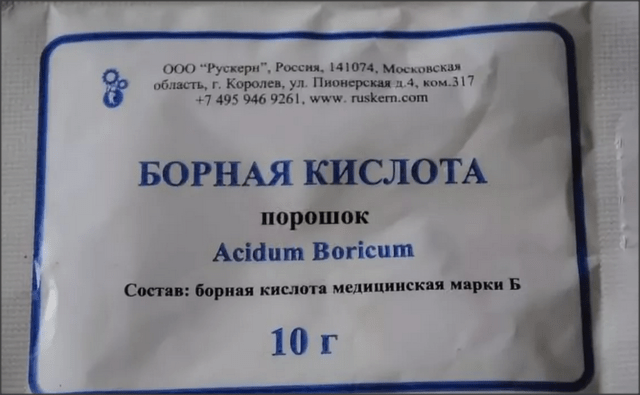
Boric acid provides planting material with useful substances and serves as a fungal preventative.
Why don't seeds germinate in water?
When sown dry, pea seeds often do not sprout abundantly. But sometimes, even when soaked in water, grains do not germinate, despite proper processing. If the peas are in the liquid for a long time, but no effect is observed, the reasons may be the following:
- the kernels are too old and completely dried out;
- planting material has deteriorated as a result of improper storage;
- the grains lay in water and died;
- The soaking liquid was not changed and as a result it soured along with the peas.
Seed producers usually carefully monitor the quality of the material. But sometimes you can find defective batches of grains in stores. In such cases, pea kernels do not germinate when soaked, although they look healthy in appearance and have a normal shelf life.
How to tell if peas have sprouted enough
Soaking pea seeds before sowing is necessary for a limited time. If you keep the material in water longer than necessary, the grains will simply die.
You can understand that it is time to remove the seeds from an ordinary liquid or biological solution by the following signs:
- the grains have increased in size and acquired a rounded shape;
- the skin of the kernels has smoothed out, and distinct folds and wrinkles have disappeared;
- The shells of the grains cracked, and small white roots appeared.
In the latter case, you can remove the peas from the solution without a doubt. The presence of roots means that the germinated kernels are completely ready for planting in the ground and will sprout in the shortest possible time.
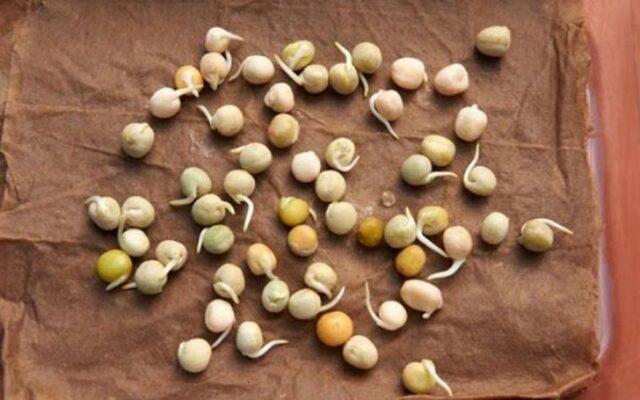
When sowing, you need to be careful and bury the peas so as not to break the hatched sprouts
Conclusion
You can soak peas before planting in warm or hot water, as well as in special solutions that increase the hardiness of the seeds and their resistance to diseases. It is not recommended to sow dry grains in open ground, since they will take a very long time to germinate, and not all kernels will eventually sprout.
